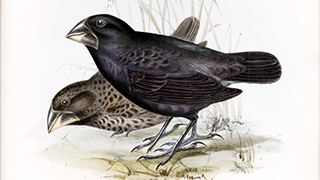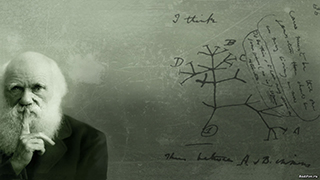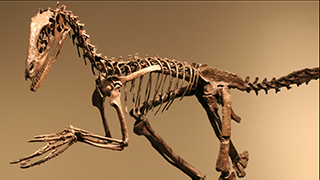Other Sites:
Robert J. Robbins is a biologist, an educator, a science administrator, a publisher, an information technologist, and an IT leader and manager who specializes in advancing biomedical knowledge and supporting education through the application of information technology. More About: RJR | OUR TEAM | OUR SERVICES | THIS WEBSITE

Nice, if used sensibly.
RJ-ROBBINS.COM Cookie Policy
This policy was last updated 21 Dec 2016.
RJ Robbins operates the RJ-ROBBINS.COM website for fun and profit (mainly fun). This page informs you of our policies regarding the use of cookies to control the operations of the site, to track the behavior of users on the site, and for other purposes.
A web cookie is a small piece of data sent from a website and stored on the user's computer by the user's web browser while the user is browsing.
Cookies work sort of like reminder notes, written by the server, for the server. The server creates these notes, then sends them to your computer. Every time you go back to the server, or go to another page, you send the cookie back to the server. That way, the server can keep track of information from your earlier visits.
Every time you go to a web page, it is a new experience for the server. Using just basic web protocols, the server has no way of knowing if you have just spent an hour picking out 22 things to buy, or whether this is your very first visit to the web site. But, with cookies the server can keep writing reminders to itself about what you did earlier (where earlier might mean two seconds ago).
Cookies can keep track of whether or not you are currently logged in, if you have put goodies in a shopping basket, and many other details.
A cookie includes instructions from the server about how long the client computer should keep the cookie before discarding it. Originally, most cookies were used to maintain current information about a particular session on a particular web server, so there wasn't much use in having them stay around forever.
However, programmers realized that by having cookies stay around longer and by having them be able to share information among different web servers, they could be used to create a more coherent experience for users, across multiple web servers. Because these kinds of cookies can keep long-term track of where a user had been, they are called tracking cookies.
Tracking cookies are one of the reasons why, when you visit, say, a newspaper site, you often see ads popping up offering to sell you things that you just investigated using a search engine, or that you just looked at on Amazon.
Tracking cookies can be useful, but they are also a little creepy — kind of like having someone follow you around constantly, taking notes on every place you go and everything you do, then calling ahead to let the folks at Macy's know that you just spent an hour at REI looking at camping gear.
Because such information can easily be abused, several governments have enacted laws that limit the use of tracking cookies, at least to the extent of requiring informed consent before the cookies are deployed. However, in my experience, most websites just satisfy this by having a little pop-up that says, "We use cookies to improve your experience on our website. OK?"
The term "cookie" for these little web-server reminders was coined by a programmer named Lou Montulli, based on the idea of a magic cookie (which is what Unix programmers called a packet of data that a program receives and sends back unchanged). The phrase "magic cookie" came from the idea of a "fortune cookie" — a cookie containing an embedded message. For more information on Lou Montulli, the creator of cookies, click HERE
Our cookie policy is simple: we do not use cookies.
We do, however, reserve the right to begin using cookies, should they become technically useful for the design and operation of the Site. If we do adopt some manner of cookie technology, we will update this policy accordingly. We will also then probably implement one of those lame pop-ups that say, "We use cookies to improve your experience on our website. You like the idea of an improved experience, right? Click yes for wonderfulness or click no to go back to using ftp, or maybe gopher."
Anyone who remembers the days of ftp or gopher wins a special gold star for demonstrating mastery of tech history.
RJR Experience and Expertise
Researcher
Robbins holds BS, MS, and PhD degrees in the life sciences. He served as a tenured faculty member in the Zoology and Biological Science departments at Michigan State University. He is currently exploring the intersection between genomics, microbial ecology, and biodiversity — an area that promises to transform our understanding of the biosphere.
Educator
Robbins has extensive experience in college-level education: At MSU he taught introductory biology, genetics, and population genetics. At JHU, he was an instructor for a special course on biological database design. At FHCRC, he team-taught a graduate-level course on the history of genetics. At Bellevue College he taught medical informatics.
Administrator
Robbins has been involved in science administration at both the federal and the institutional levels. At NSF he was a program officer for database activities in the life sciences, at DOE he was a program officer for information infrastructure in the human genome project. At the Fred Hutchinson Cancer Research Center, he served as a vice president for fifteen years.
Technologist
Robbins has been involved with information technology since writing his first Fortran program as a college student. At NSF he was the first program officer for database activities in the life sciences. At JHU he held an appointment in the CS department and served as director of the informatics core for the Genome Data Base. At the FHCRC he was VP for Information Technology.
Publisher
While still at Michigan State, Robbins started his first publishing venture, founding a small company that addressed the short-run publishing needs of instructors in very large undergraduate classes. For more than 20 years, Robbins has been operating The Electronic Scholarly Publishing Project, a web site dedicated to the digital publishing of critical works in science, especially classical genetics.
Speaker
Robbins is well-known for his speaking abilities and is often called upon to provide keynote or plenary addresses at international meetings. For example, in July, 2012, he gave a well-received keynote address at the Global Biodiversity Informatics Congress, sponsored by GBIF and held in Copenhagen. The slides from that talk can be seen HERE.
Facilitator
Robbins is a skilled meeting facilitator. He prefers a participatory approach, with part of the meeting involving dynamic breakout groups, created by the participants in real time: (1) individuals propose breakout groups; (2) everyone signs up for one (or more) groups; (3) the groups with the most interested parties then meet, with reports from each group presented and discussed in a subsequent plenary session.
Designer
Robbins has been engaged with photography and design since the 1960s, when he worked for a professional photography laboratory. He now prefers digital photography and tools for their precision and reproducibility. He designed his first web site more than 20 years ago and he personally designed and implemented this web site. He engages in graphic design as a hobby.
RJR Picks from Around the Web (updated 11 MAY 2018 )
Old Science

Weird Science

Treating Disease with Fecal Transplantation
Fossils of miniature humans (hobbits) discovered in Indonesia
Paleontology

Dinosaur tail, complete with feathers, found preserved in amber.
Astronomy

Mysterious fast radio burst (FRB) detected in the distant universe.
Big Data & Informatics

Big Data: Buzzword or Big Deal?
Hacking the genome: Identifying anonymized human subjects using publicly available data.